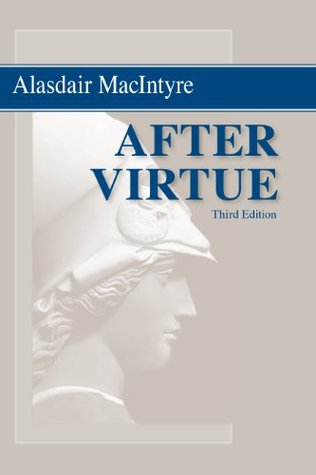But why should we find agreeable certain qualities in others which are not useful to us—Hume is sure that we do—and why should we obey rules on occasions when it is not to our interest to do so? Hume’s answers to these questions reveal the underlying weakness of his account. For he tries to conclude in the Treatise that it is to our long-term advantage to be just, when all that his premises warrant is the younger Rameau’s conclusion that it is often to our long-term advantage that people in general should be just.
Welcome back. Just a moment while we sign you in to your Goodreads account.


